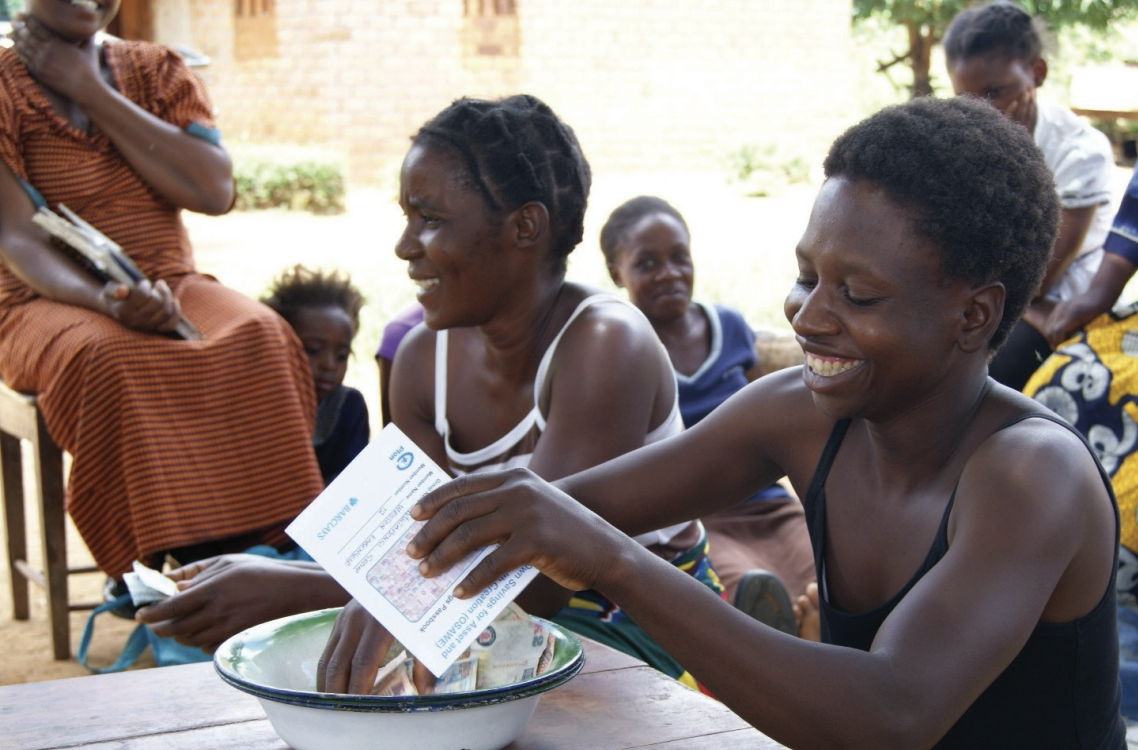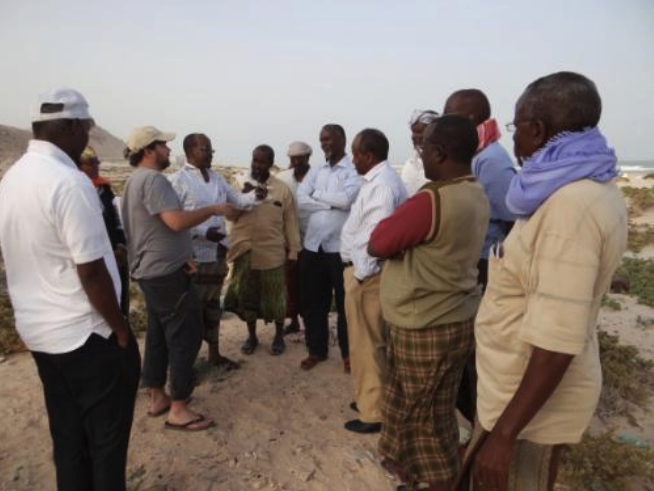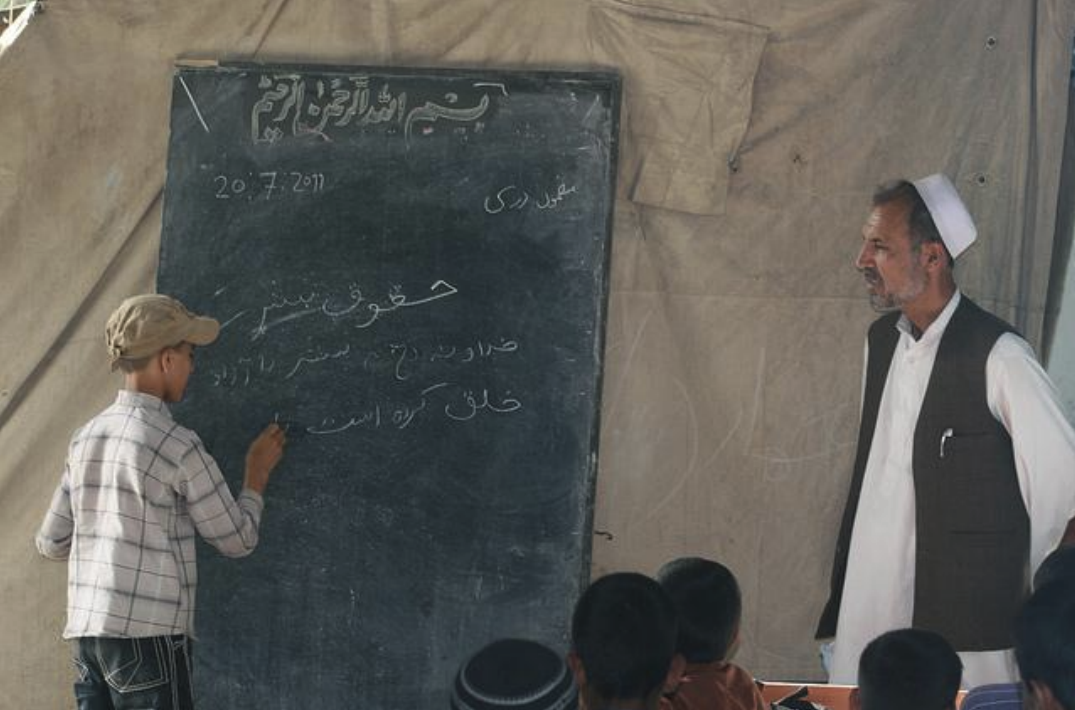
Breaking Barriers to Youth Entrepreneurship & Employment through Savings Groups
- Partner: The SEEP Network
- Publication Type: Webinar
- Date: June 24, 2014
Can youth savings groups help foster entrepreneurship and employment among young people, supporting them in their search for decent work and their struggle against poverty? This webinar presented key findings from a paper on the topic commissioned by Plan UK; programmatic considerations on what is working and what is not from the Banking on Change partnership; and learnings from Freedom from Hunger's AIM youth initiative.
Read More
DCED Webinar: Measuring Women’s Economic Empowerment
- Partner: Donor Committee for Enterprise Development (DCED)
- Publication Type: Webinar
- Date: June 17, 2014
Why measure women’s economic empowerment? Why are household level indicators important for measuring changes in women’s economic empowerment? In this webinar, Erin Markel presents guidelines, good practices, and lessons learned for Measuring Results of Women’s Economic Empowerment in Private Sector Development.
Read More
Measuring Job Creation in Private Sector Development
- Partner: Donor Committee for Enterprise Development (DCED)
- Publication Type: Working Paper
- Date: June 2014
There are significant challenges impeding the measurement of job creation. The complexity of the topic makes measurement challenging and error-prone. Few guidance documents are available presenting methodologies for measuring project-level impacts on job creation. The aim of this paper is to provide guidance and practical examples on measuring job creation impacts.
Read More
Evaluating Systems and Systemic Change for Inclusive Market Development
- Partner: Leveraging Economic Opportunities (LEO)
- Publication Type: Report
- Date: June 2014
This report presents a literature review on evaluating systems and systemic change. This review highlights findings that can contribute to developing an evaluation framework for interventions to facilitate inclusive market systems development and empirical approaches for identifying and monitoring systemic changes.
Read More
Youth Savings Groups, Entrepreneurship and Employment
- Partner: Plan UK
- Publication Type: Report
- Date: May 2014
This report examines how youth savings groups can contribute to the fight against youth unemployment. It looks at key constraints to youth employability and entrepreneurship, including limited asset base and access to finance, lack of employability and entrepreneurship skills, limited social networks, household underinvestment in education and health, unfavorable cultural and social norms and non-conducive regulatory frameworks.
Read More
Leveraging Apprenticeships to Reach and Benefit Vulnerable Youth: Lessons from STRIVE’s Afghan Secure Futures Program
- Partner: Mennonite Economic Development Associates (MEDA), United States Agency for International Development (USAID), and FHI360
- Publication Type: Report
- Date: December 2013
STRIVE implemented four field projects in Africa and Asia between 2008 and 2013, ranging from savings-led finance to workforce development to value chain interventions. This report summarizes the findings of one of four STRIVE-funded initiatives, MEDA’s Afghan Secure Futures (ASF) project. ASF focused on benefiting youth apprentices working in workshops in the Afghan construction sector.
Read More
Measuring Results in Challenge Funds: Practical Guidelines for Implementing the DCED Standard
- Partner: Donor Committee for Enterprise Development (DCED)
- Publication Type: Toolkit
- Date: October 2013
This paper provides guidance for results measurement in challenge funds using the DCED Standard, an eight-part framework for measuring and managing results of private sector development programs. It looks at each of the eight elements of the DECD Standard to present practical advice on how to implement them in a challenge fund context.
Read More
Practical Guidelines for Measuring Achievements in Private Sector Development in Conflict-Affected Environments: A Case Study of The Employment Promotion Programme in Sierra Leone
- Partner: Donor Committee for Enterprise Development (DCED)
- Publication Type: Case Study
- Date: August 2013
This case study supplements the DCED Practical Guidelines for Measuring Achievements in Private Sector Development in Conflict-Affected Environments (CAEs), drawing lessons from the Employment Promotion Programme (EPP) in Sierra Leone. The case is structured around four elements of the DCED Standard: articulating the results chain, defining indicators, measuring indicators, and managing the system for results measurement.
Read More
Practical Guidelines for Measuring Achievements in Private Sector Development in Conflict-Affected Environments: A Case Study of the Sustainable Employment and Economic Development (SEED) Programme in Somalia
- Partner: Donor Committee for Enterprise Development (DCED)
- Publication Type: Case Study
- Date: August 2013
This case study supplements the DCED Practical Guidelines for Measuring Achievements in Private Sector Development in Conflict-Affected Environments (CAEs). It examines the Sustainable Employment and Economic Development (SEED) programme in Somalia, which explicitly aims to reduce conflict through employment promotion, and develop a conflict sensitive results measurement system.
Read More
Incorporating Supplementary Literacy and Numeracy Classes: Findings from STRIVE’s Afghan Secure Futures Program
- Partner: Mennonite Economic Development Associates (MEDA), United States Agency for International Development (USAID), and FHI360
- Publication Type: Report
- Date: June 2013
STRIVE has implemented four field projects in Africa and Asia between 2008 and 2013. Each project has pursued a unique economic strengthening approach, ranging from savings-led finance to workforce development to value chain interventions. This report summarizes the findings of one of four STRIVE-funded initiatives, MEDA’s Afghan Secure Futures (ASF) project. ASF focused on benefiting youth apprentices working in workshops in the Afghan construction sector, in part by facilitating their access to supplementary literacy and numeracy training.
Read More

